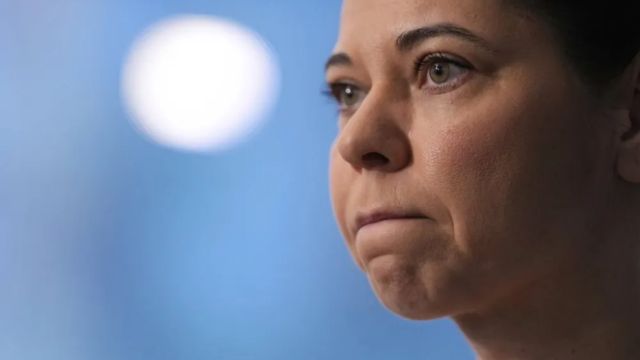NEW YORK — When President Trump took away $400 million in funding from Columbia University because of how it handled student protests against Israel’s war in Gaza, a lot of the money went to researchers who worked on things like curing cancer and studying how COVID-19 affects children.
One reason Columbia University gave in to the Republican administration’s unprecedented demands for changes in university policy as a condition of getting funds restored last week was the need to save ongoing research projects at the university’s labs and world-renowned medical center.
The Ivy League school said on Friday that it would change how it punishes students, stop protesters from wearing masks, stop demonstrations from happening in school buildings, adopt a new definition of antisemitism, and give the Middle Eastern studies program a vice provost who would be in charge of hiring and setting the curriculum.
Many of the Trump administration’s requests were met by Columbia University, which angered some faculty members who say the school has given up academic freedom. Columbia University faculty members were represented by the American Association of University Professors and the American Federation of Teachers in a lawsuit filed Tuesday. The lawsuit says that the funding being taken away violates free speech rules.
Researchers in science and medicine are shocked that their work was brought up in the first place.
In order to reduce antisemitism in another place, Dr. Dani Dumitriu, a pediatric researcher studying babies born during the COVID-19 pandemic, said, “There is simply no justifiable link for the federal government to put this kind of research in the line of fire.” She said this from her office in midtown Manhattan.
Brain cancer expert Dr. Andrew Lassman, who is also the associate head of clinical trials at Columbia’s cancer center, said that if the cuts go through, researchers will have to make tough choices. He said that among these decisions could be deciding which experimental cancer treatments to focus on first and how many people they can help.
Lassman works at the Columbia University Irving Medical Center, which is about 2.5 miles (4 kilometers) north of the main campus of the university. “This is real research, not theoretical research,” he said. “Cancer doesn’t care if you are young, old, black, white, Republican, or Democrat.”
After the university announced the changes on Friday, U.S. Education Secretary Linda McMahon said it was “on the right track.” However, she hasn’t said yet if funds will be returned.
Katrina Armstrong, Columbia’s acting president, said on Tuesday that the changes to the school’s rules were “right for Columbia.”
In a statement, she said, “Implementation of these measures is fundamental to sustaining our academic mission without disruption and ensuring the safety of Columbia’s students and campuses.” She also said that she was committed to bringing the university and the federal government back together.
On Columbia’s main campus, Benjamin Bostick, an environmental scientist whose work on the quality of water in rural areas of Arizona, Oklahoma, and the Dakotas lost funds, was upset that the university had given in to the Trump administration’s demands.
He said that the school didn’t have much of a choice but to give up. “But I really don’t like how it divides the institution and takes attention away from the fact that research activities are being stopped by outside forces,” Bostick said.
He said about the water quality study, “From my point of view, the government is telling me that they don’t care about people who have these problems or how to solve them.”
There was a program at Columbia’s Teachers College that trains graduate students to teach the deaf and hard of hearing. It was cut. The program’s co-director, Elaine Smolen, said that the Department of Education grant helped students pay for school, cover their living costs, and get professional growth.
“You can’t argue with the fact that there is a huge need for the work we do,” she said. “It gets worse for deaf or hard of hearing kids the longer they have to wait for help.”
Dumitriu’s office has had to stop doing and analyzing brain scans on study participants because of a lack of funds. The study’s goal was to follow the long-term health of children whose mothers got COVID-19 while they were pregnant.
“We were learning a lot, and we wanted to keep in touch with these babies until they were adults,” she said.
A mom from New Jersey named Casandra Almonte said that cutting funds “makes no sense at all.” She is taking part in the study with her son.
She told Dumitriu’s team that the extra tests and regular check-ins gave her peace of mind that her 2-year-old son Oliver was growing up right.
Almonte said, “It’s not fair to take money away from science just because people are free to speak their minds.”
Dumitriu says that for now, a lot of her team’s work can still be done with other funds, since the National Institutes of Health grant that was cut off by Trump’s government only made up a quarter of their budget. She wants to send an appeal while her office looks for other funds.
Dmitriu said, “We’re kind of living moment to moment.” “Now is not a good time to want to do good.”









